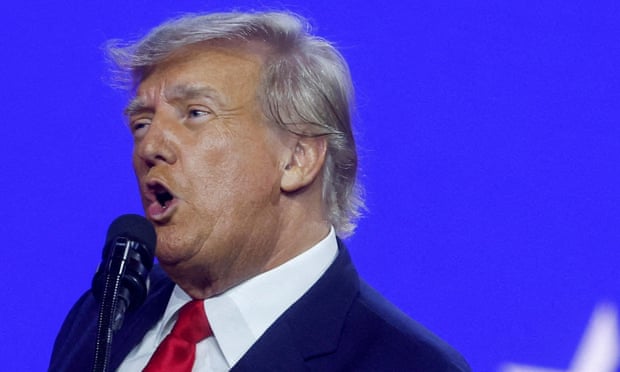Trump Facing Justice
A Manhattan grand jury indicted former President Donald Trump Thursday for crimes related to bearing false witness and violation of election laws.* It is the first time in 2 1/2 centuries of American democracy that a former president has faced criminal prosecution. The judicial and political earthquake marks a before and after in how the country relates to its institutions, threatens to trigger the polarization of the country and will have consequences for the 2024 presidential elections in which Trump is a candidate.
The case involves events that date back to 2018 [related to events that took place in 2016]. It was revived by Democratic Manhattan District Attorney Alvin Bragg, who was elected in 2021, and concerns the payment of $130,000 to actress Stephanie Clifford, known as Stormy Daniels, in exchange for keeping quiet about the alleged sexual relations she had with Trump. The payment was made by the real estate tycoon's lawyer at the end of the 2016 election campaign to avoid scandal and was reimbursed by the candidate. There are two theories for prosecution: bearing false witness by hiding the payment, and violating election laws by treating the payment as a donation to Trump’s presidential campaign in an effort to influence the outcome of the election.
Perhaps the circumstances have transformed a minor issue into a serious crime. But that makes it the riskiest case to prove given the lack of precedent. There is intense legal debate about how strong the case is, and there is reason for skepticism. The possibility that Trump could be exonerated and the prosecution humiliated is not a minor risk. Trump described the indictment as "political persecution" and "election interference.”
According to his staff, Trump believes the indictment is good for him because it lends him some notoriety. He can squeeze his victimhood financially and electorally. Undoubtedly, the reactivation of the Trump cult is a collateral political risk. Nothing prevents him from running for reelection under indictment or even from prison. The Republican Party has shown its solidarity with Trump, reversing a recent slow retreat. But the most concerning thing is that Trumpism and all it represents continues to hijack the energy for an alternative dynamic movement in the United States.
District Attorney Bragg's case still has a way to go, with the principal challenge being that of convincing a judge there is enough evidence that Trump committed a crime to force him to stand trial, and then to secure a conviction. But for the moment, the indictment has managed to break the aura of impunity surrounding a man who has eluded justice during four decades of shady business dealings and open disregard for the law. The full ramifications of Trump's indictment and its potential to transform America can scarcely be imagined.
The precedent-setting indictment may affect all future presidents: Just as there are Democratic prosecutors, there are Republican prosecutors. The almost reverential relationship the country has with its presidents has been damaged. But it is not Bragg who is responsible for blasting unwritten norms. Trump subjected American institutions and traditions to his will and placed the country at the abyss of a coup d'état.
Precedents were already broken. It would be satisfying to see Trump brought to justice. After the chaos and institutional outrage, it is time for the law without any fear of the consequences.
*Editor’s note: The grand jury issued the indictment of Donald Trump for his alleged role in a matter stemming from hush money payments made to pornographic film actress Stormy Daniels prior to the 2016 presidential election. The specific charges in the sealed indictment have not been disclosed.


